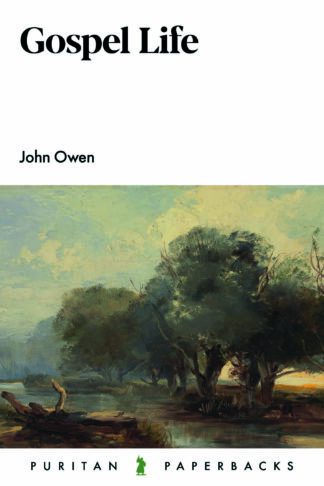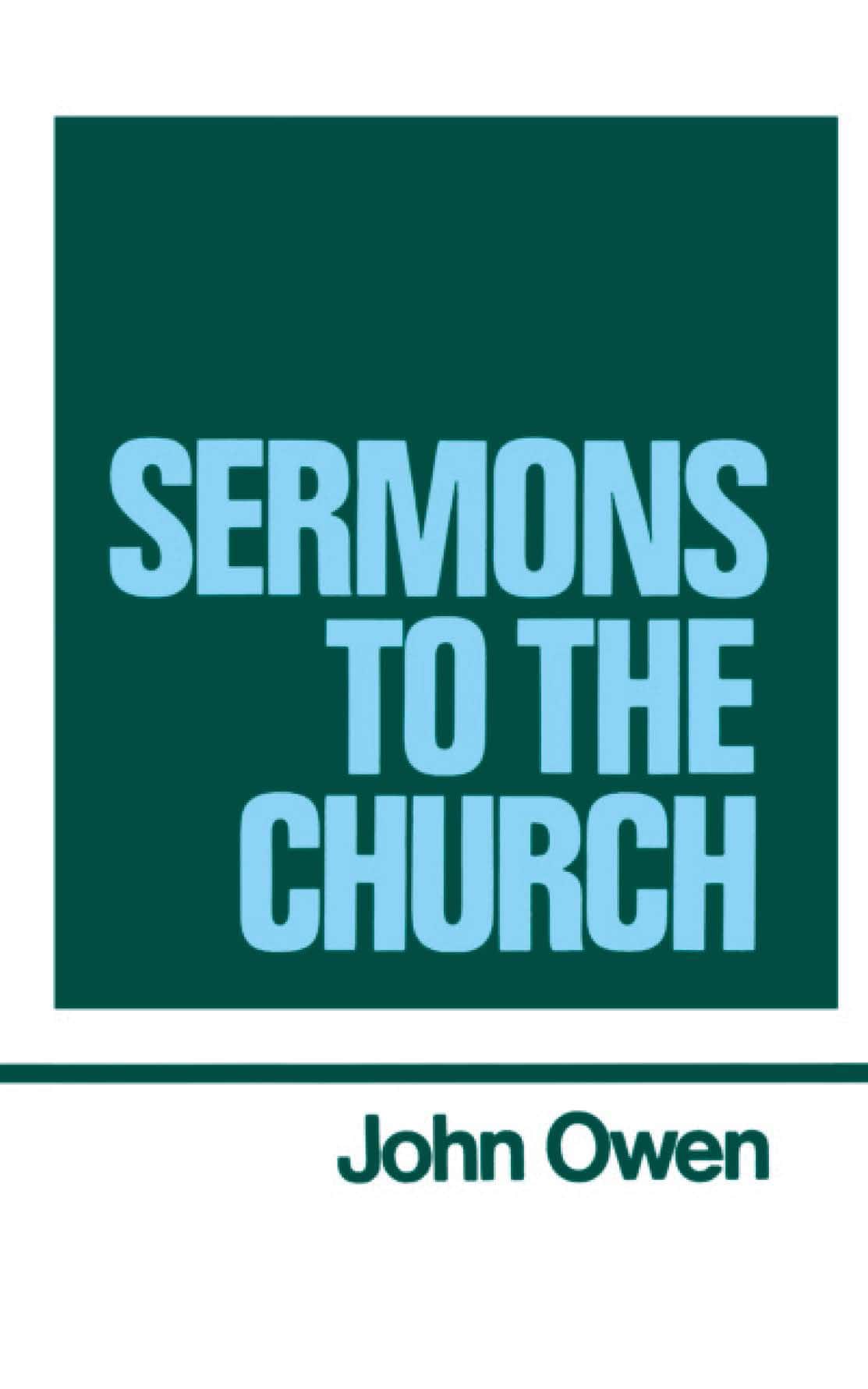John Owen on Dying Comfortably
Beginning on 26 September 1680, John Owen preached three consecutive sermons1The three sermons were published posthumously in 1721. They may be found in Volume 9 of the Banner edition of his Works, pp. 334-352, and also in the Puritan Paperback Gospel Life, pp. 205-237. from 1 Corinthians 15:31, opening up Paul’s statement ‘I die daily.’ At points he is intensely personal, preaching to himself, preparing for his own death which took place almost three years later on 24 August 1683. He was also aware of other noteworthy men who had died recently—Thomas Goodwin (died in February 1680), Stephen Charnock (died in July 1680), Matthew Poole (died in 1679) and Theophilus Gale (died in 1678). During the time he preached these sermons Thomas Brooks also died.
Owen explains Paul’s statement ‘I die daily’ as a testimony to the stability of his faith in the Lord Jesus Christ and the resurrection of the dead. It was this faith that carried him though all kinds of difficulties. He concludes that it was the duty of all believers to prepare themselves to die cheerfully and comfortably. He observed that this faith would be seen outwardly in the various conditions and causes of death, which is left to the providences of God, and also inwardly. However, in the latter faith may not always be manifested.
He then explains three essentials, the first of which he covers in the first two sermons. Of primary importance is the constant exercise of faith with respect to the resigning of our departing souls into the hand and sovereign will of God. When the time comes we will enter into an invisible world. We know nothing of that world except what God has revealed in his word. The saints of God believe there will be an act of mighty power put forward by God when we depart for this invisible world. They resign themselves to God’s sovereign grace, his power, his wisdom, his good pleasure, his mercy and his faithfulness. The greatest example of such resignation is seen in the Lord Jesus Christ, when he cried out with a loud voice, ‘Father, into your hands I commit my spirit’ (Luke 23:46).
Owen deals with the fears of our hearts, the uncertainties and darkness relating to the future, and the hatred we entertain with regard to the dissolution of our body. But he says that is to be weighed against the ability of God to receive and preserve us to that day and to be better to us than all these things that threaten to undo us.
In the second sermon he drives home the special nature of this duty, insisting it is our responsibility to discern whether we possess this kind of faith in the power of God. Pointing his readers to Psalm 31:5 (the words Christ used on the cross), he asks what gave the psalmist confidence. Referring to Psalms 16:1, 2 and 31:14, 15, faith takes on board redeeming grace conveyed by the truth of God’s promises. Faith considers the ability of God to preserve them as they enter the invisible world (2 Tim. 1:12), and the faithfulness of God (1 Pet. 4:19). This he further explains is a matter of ‘commending’ and ‘committing’ our soul to God, leaving it in trust to God. This is to be done verbally, as with David and the Lord Jesus in the verses already considered. Owen maintains this is to be done daily, so that the sovereignty, power and faithfulness of God remains uppermost in our minds and hearts. This alone will support us whatever we may suffer before we die. The only persons who can do this are those who have a clear persuasion of their interest in Christ, and a clear view of eternal things. They and they alone are able to die safely and comfortably.
The third sermon begins with a question and ends with a warning. He asks whether we are willing and ready to die. Owen, as a true pastor, deals with the soul’s natural aversion to dying. He mentions those who, in effect say, ‘I am happy to be dead, but I do not want to die.’ He explains this aversion. The soul has never had to act without the body. Death dissolves the union of body and soul. When God made us there were two distinct divine acts. He first formed the body out of the dust and then breathed into the nostrils the breath of life. There will be no new union of body and soul until the resurrection.
At the point of death Christ will free our bodies, but we do not die like the beasts. Our first desire is to be ‘further clothed’ (2 Cor. 5:4). But it is not God’s way to do that at death. Rather he brings us to the point where we are willing to part with our body. All our efforts in our earthly life to remove our sin fail. Death is God’s refining pot, the way he purifies us. We desire to depart and be with Christ (Phil. 1:21), but first the body must have sin uprooted by death itself. We must return to dust. Owen concludes, ‘there is no sting in death, no darkness in the grave … a lying down in the hands of the great Refiner, who will purge, purify and restore you.’
His final words constitute a warning. Do not let death surprise you so that you are overtaken by death while you are in a wrong spiritual frame
of heart. David relapsed from a good frame but recovered his strength (Psa. 39:13). Owen relates some of the difficulties we face—the world, temptations, and self-love. It is all too easy to overvalue human relationships. What is needed? An active meditation on and a constant view of things above, maintaining a spiritual-mindedness. If we ignore such things death will find us unprepared and take us by surprise. He urges us to pray that God will keep up our spirits by his Spirit.
Owen’s personal earnestness comes to the fore in some of his concluding remarks. ‘In plain terms, I am speaking to dying men who do not know how soon they may die. May God advise my own heart that I should labour and watch so that death might not find me without a sight of eternal things! If it does—if our bellies cleave to the dust and our eyes turn to the ground; if we are filled with other things, and death approaches—do you think it will be an easy thing to gather in your minds and affections to agree to it and welcome it? You will not find it so’ (Gospel Life, pp. 236-237).
This article first appeared in the December 2023 issue of the Banner of Truth Magazine, Issue 723. Buy the issue or subscribe.
The featured image (visible when the article is shared on social media) is Henry Bright’s On the Norfolk Broads (Yale Centre for British Art, Public Domain).
Buy Gospel Life
The three sermons mentioned above can be read in Gospel Life, a Puritan Paperback which presents some of the material found in Volume 9 of The Works of John Owen.

Description
Beginning on 26 September 1680, John Owen preached three consecutive sermons from 1 Corinthians 15:31, opening up Paul’s statement ‘I die daily.’ At points he is intensely personal, preaching to himself, preparing for his own death which took place almost three years later on 24 August 1683. He was also aware of other noteworthy men […]

The Works of John Owen
Volume 9: Sermons to the Church
Description
Beginning on 26 September 1680, John Owen preached three consecutive sermons from 1 Corinthians 15:31, opening up Paul’s statement ‘I die daily.’ At points he is intensely personal, preaching to himself, preparing for his own death which took place almost three years later on 24 August 1683. He was also aware of other noteworthy men […]
Latest Articles
Why So Few Candidates for Gospel Ministry? 30 July 2025
The following article is featured in the present issue (743–744) of the Banner of Truth Magazine, Aug–Sept 2025. The world is a needy place; it lies in darkness and the only remedy is gospel light. This should weigh on us, as it weighted on the Lord Jesus. As he himself was engaged in preaching the […]
Isaac Watts: The Man Behind the Hymns 16 July 2025
The following article appeared in the February 1982 issue of The Banner of Truth Magazine. In May, 1789, Adam Rankin, having travelled from Kentucky to Philadelphia for the first General Assembly of the Presbyterian Church in the United States of America, made the following query: ‘Whether the churches…have not fallen into a great pernicious error by […]
